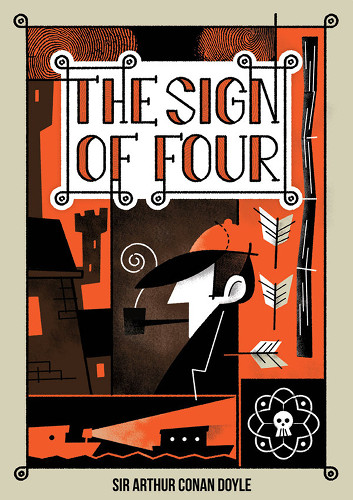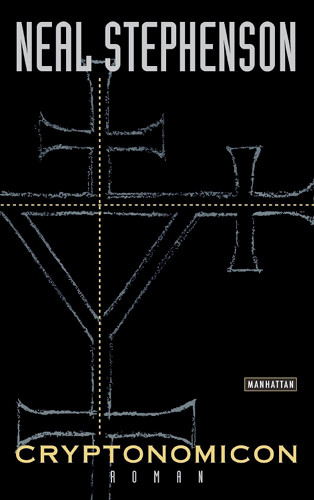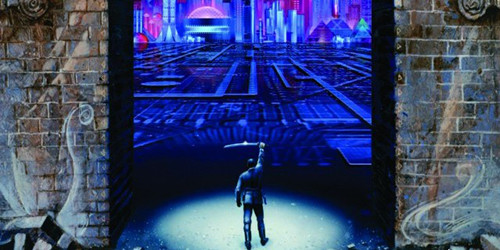Excerpt from the novel The Golden Compass ![]()
![]() by Philip Pullman
by Philip Pullman ![]()
![]()
“Why en’t you cold, Serafina Pekkala?”
“We feel cold, but we don’t mind it, because we will not come to harm. And if we wrapped up against the cold, we wouldn’t feel other things, like the bright tingle of the stars, or the music of the Aurora, or best of all the silky feeling of moonlight on our skin. It’s worth being cold for that.”
“Could I feel them?”
“No. You would die if you took your furs off. Stay wrapped up.”
“How long do witches live, Serafina Pekkala? Farder Coram says hundreds of years. But you don’t look old at all.”
“I am three hundred years or more. Our oldest witch mother is nearly a thousand. One day, Yambe-Akka will come for her. One day she’ll come for me. She is the goddess of the dead. She comes to you smiling and kindly, and you know it is time to die.”
“Are there men witches? Or only women?”
“There are men who serve us, like the consul at Trollesund. And there are men we take for lovers or husbands. You are so young, Lyra, too young to understand this, but I shall tell you anyway and you’ll understand it later: men pass in front of our eyes like butterflies, creatures of a brief season. We love them; they are brave, proud, beautiful, clever; and they die almost at once. They die so soon that our hearts are continually racked with pain. We bear their children, who are witches if they are female; human if not; and then in the blink of an eye they are gone, felled, slain, lost. Our sons, too. When a little boy is growing, he thinks he is immortal. His mother knows he isn’t. Each time becomes more painful, until finally your heart is broken. Perhaps that is when Yambe-Akka comes for you. She is older than the tundra. Perhaps, for her, witches’ lives are as brief as men’s are to us.”
“Did you love Farder Coram?”
“Yes. Does he know that?”
“I don’t know, but I know he loves you.”
“When he rescued me, he was young and strong and full of pride and beauty. I loved him at once. I would have changed my nature, I would have forsaken the star-tingle and the music of the Aurora; I would never have flown again—I would have given all that up in a moment, without a thought, to be a gyptian boat wife and cook for him and share his bed and bear his children. But you cannot change what you are, only what you do. I am a witch. He is a human. I stayed with him for long enough to bear him a child….”
“He never said! Was it a girl? A witch?”
“No. A boy, and he died in the great epidemic of forty years ago, the sickness that came out of the East. Poor little child; he flickered into life and out of it like a mayfly. And it tore pieces out of my heart, as it always does. It broke Coram’s. And then the call came for me to return to my own people, because Yambe-Akka had taken my mother, and I was clan queen. So I left, as I had to.”
“Did you never see Farder Coram again?”
“Never. I heard of his deeds; I heard how he was wounded by the Skraelings, with a poisoned arrow, and I sent herbs and spells to help him recover, but I wasn’t strong enough to see him. I heard how broken he was after that, and how his wisdom grew, how much he studied and read, and I was proud of him and his goodness. But I stayed away, for they were dangerous times for my clan, and witch wars were threatening, and besides, I thought he would forget me and find a human wife….”
“He never would,” said Lyra stoutly. “You oughter go and see him. He still loves you, I know he does.”
“But he would be ashamed of his own age, and I wouldn’t want to make him feel that.”
“Perhaps he would. But you ought to send a message to him, at least. That’s what I think.”
Serafina Pekkala said nothing for a long time. Pantalaimon became a tern and flew to her branch for a second, to acknowledge that perhaps they had been insolent.
Then Lyra said, “Why do people have dӕmons, Serafina Pekkala?”
“Everyone asks that, and no one knows the answer. As long as there have been human beings, they have had dӕmons. It’s what makes us different from animals.”
“Yeah! We’re different from them all right…. Like bears. They’re strange, en’t they, bears? You think they’re like a person, and then suddenly they do something so strange or ferocious you think you’ll never understand them…. But you know what Iorek said to me, he said that his armor for him was like what a dӕmon is for a person. It’s his soul, he said. But that’s where they’re different again, because he made this armor hisself. They took his first armor away when they sent him into exile, and he found some sky iron and made some new armor, like making a new soul. We can’t make our dӕmons. Then the people at Trollesund, they got him drunk on spirits and stole it away, and I found out where it was and he got it back…. But what I wonder is, why’s he coming to Svalbard? They’ll fight him. They might kill him…. I love Iorek. I love him so much I wish he wasn’t coming.”
“Has he told you who he is?”
“Only his name. And it was the consul at Trollesund who told us that.”
“He is highborn. He is a prince. In fact, if he had not committed a great crime, he would be the king of the bears by now.”
“He told me their king was called Iofur Raknison.”
“Iofur Raknison became king when Iorek Byrnison was exiled. Iofur is a prince, of course, or he wouldn’t be allowed to rule; but he is clever in a human way; he makes alliances and treaties; he lives not as bears do, in ice forts, but in a new-built palace; he talks of exchanging ambassadors with human nations and developing the fire mines with the help of human engineers…. He is very skillful and subtle. Some say that he provoked Iorek into the deed for which he was exiled, and others say that even if he didn’t, he encourages them to think he did, because it adds to his reputation for craft and subtlety.”
“What did Iorek do? See, one reason I love Iorek, it’s because of my father doing what he did and being punished. Seems to me they’re like each other. Iorek told me he’d killed another bear, but he never said how it came about.”
“The fight was over a she-bear. The male whom Iorek killed would not display the usual signals of surrender when it was clear that Iorek was stronger. For all their pride, bears never fail to recognize superior force in another bear and surrender to it, but for some reason this bear didn’t do it. Some say that Iofur Raknison worked on his mind, or gave him confusing herbs to eat. At any rate, the young bear persisted, and Iorek Byrnison allowed his temper to master him. The case was not hard to judge; he should have wounded, not killed.”
“So otherwise he’d be king,” Lyra said. “And I heard something about Iofur Raknison from the Palmerian Professor at Jordan, ’cause he’d been to the North and met him. He said…. I wish I could remember what it was…. I think he’d tricked his way on to the throne or something…. But you know, Iorek said to me once that bears couldn’t be tricked, and showed me that I couldn’t trick him. It sounds as if they was both tricked, him and the other bear. Maybe only bears can trick bears, maybe people can’t. Except… The people at Trollesund, they tricked him, didn’t they? When they got him drunk and stole his armor?”
“When bears act like people, perhaps they can be tricked,” said Serafina Pekkala. “When bears act like bears, perhaps they can’t. No bear would normally drink spirits. Iorek Byrnison drank to forget the shame of exile, and it was only that which let the Trollesund people trick him.”
“Ah, yes,” said Lyra, nodding. She was satisfied with that idea. She admired Iorek almost without limit, and she was glad to find confirmation of his nobility. “That’s clever of you,” she said. “I wouldn’t have known that if you hadn’t told me. I think you’re probably cleverer than Mrs. Coulter.”
They flew on. Lyra chewed some of the seal meat she found in her pocket.
“Serafina Pekkala,” she said after some time, “what’s Dust? ‘Cause it seems to me that all this trouble’s about Dust, only no one’s told me what it is.”
“I don’t know,” Serafina Pekkala told her. “Witches have never worried about Dust. All I can tell you is that where there are priests, there is fear of Dust. Mrs. Coulter is not a priest, of course, but she is a powerful agent of the Magisterium, and it was she who set up the Oblation Board and persuaded the Church to pay for Bolvangar, because of her interest in Dust. We can’t understand her feelings about it. But there are many things we have never understood. We see the Tartars making holes in their skulls, and we can only wonder at the strangeness of it. So Dust may be strange, and we wonder at it, but we don’t fret and tear things apart to examine it. Leave that to the Church.”
“The Church?” said Lyra. Something had come back to her: she remembered talking with Pantalaimon, in the fens, about what it might be that was moving the needle of the alethiometer, and they had thought of the photomill on the high altar at Gabriel College, and how elementary particles pushed the little vanes around. The Intercessor there was clear about the link between elementary particles and religion. “Could be,” she said, nodding. “Most Church things they keep secret, after all. But most Church things are old, and Dust en’t old, as far as I know. I wonder if Lord Asriel might tell me….”
She yawned.
“I better lie down,” she said to Serafina Pekkala, “else I’ll probably freeze. I been cold down on the ground, but I never been this cold. I think I might die if I get any colder.”
“Then lie down and wrap yourself in the furs.”
“Yeah, I will. If I was going to die, I’d rather die up here than down there, any day. I thought when they put us under that blade thing, I thought that was it…. We both did. Oh, that was cruel. But we’ll lie down now. Wake us up when we get there,” she said, and got down on the pile of furs, clumsy and aching in every part of her with the profound intensity of the cold, and lay as close as she could to the sleeping Roger.
And so the four travelers sailed on, sleeping in the ice-encrusted balloon, toward the rocks and glaciers, the fire mines, and the ice forts of Svalbard.





